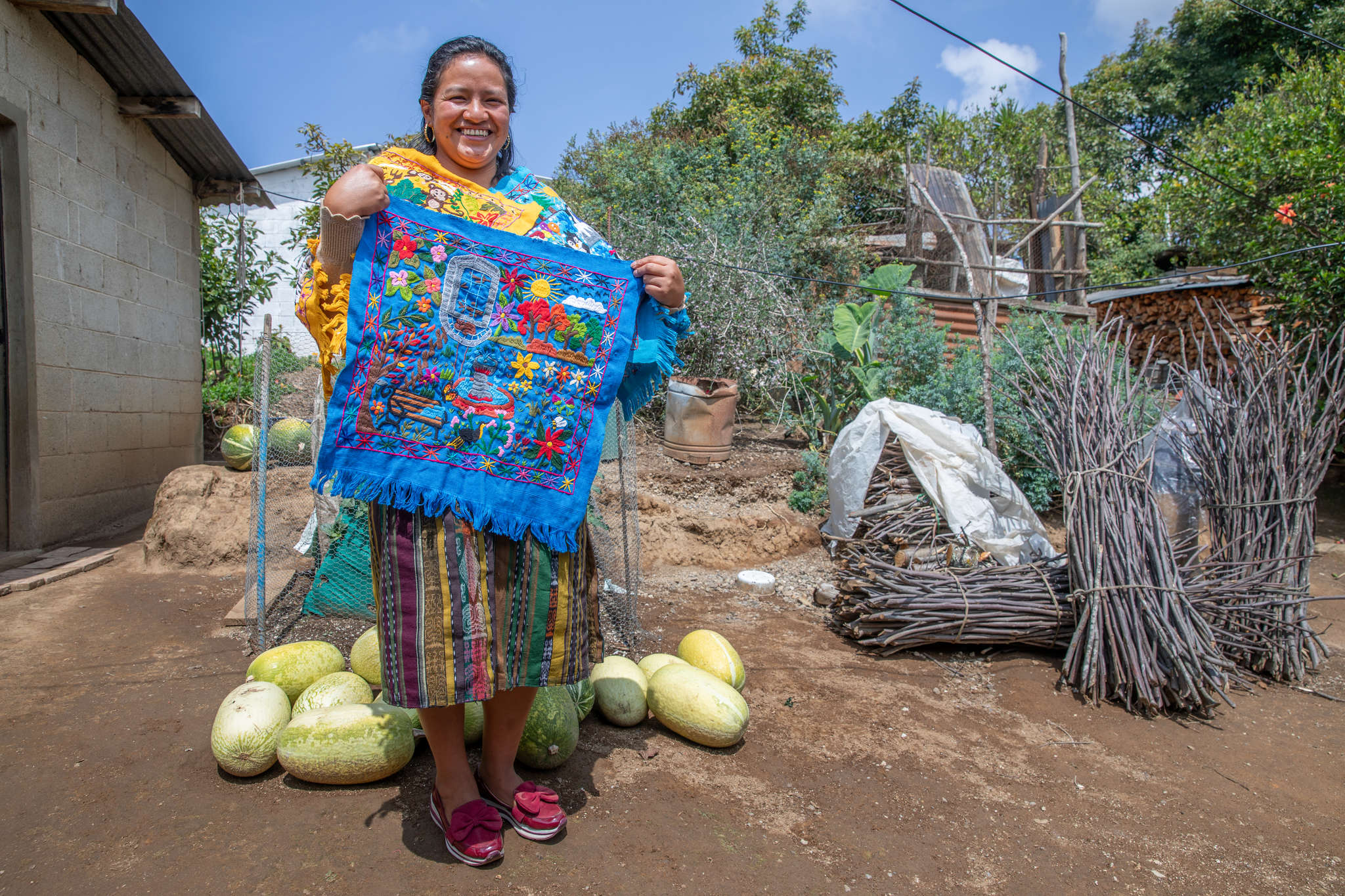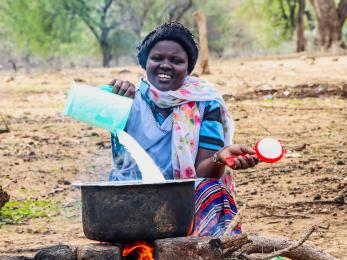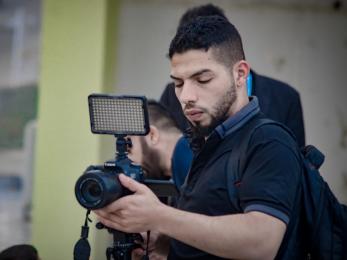Building stronger communities through small businesses
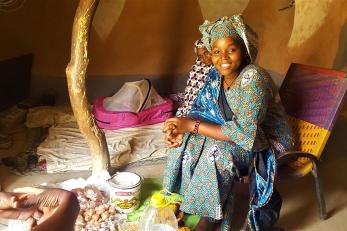
Mali is a country brimming with promise. Its population is young — about 60% of Malians are under 25 years old — and expected to double by 2030.
But for all of Mali’s youthful energy, there are limited job opportunities.
In Northern Mali, crime and corruption are obstacles to entrepreneurship, as is difficulty accessing financial services. Insecurity in the center and northern parts of the country has also worsened the employment situation.
That’s where our work comes in.
We support local entrepreneurship because when connected to valuable opportunities, people of all ages have the power to be a positive force for change. By engaging meaningfully with aspiring entrepreneurs in Mali, together we are building a better future with safer and more sustainable communities.
Mercy Corps finds entrepreneurs to support by launching calls for applications in vulnerable communities. Our team then visits the applicants to see what they’re working on and how we might be able to help them. Once we choose our candidates, we provide them with money to build their businesses, help them reorganize and redefine their priorities, and teach them how to better manage their financial situations.
Entrepreneurs also attend workshops on transferable skills, microenterprise management, market assessment and business plans. Even after grants, our teams continue to support them on a regular basis.
Below, meet some of the entrepreneurs we support in Ansongo, a small town in Northern Mali.
Bibata
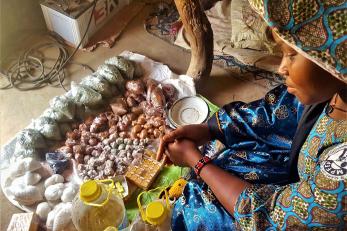
When we met Bibata, 25, she was selling food products like paddy rice and grilled potatoes out of her home.
Her business provides much of her family’s income. Expanding it means a better life for all of them.
With the first grant money she received, Bibata bought more paddy rice, along with spices and dried vegetables. By progressively investing in her business and saving a portion of its revenues, her profit doubled within months.
"With the revival of my business, I remain active and I do not depend on anyone,” she says.
There are still challenges. Bibata lives in a dangerous area, so she prefers to work discretely out of her home to avoid the attacks that public shopkeepers face. In addition to this insecurity, Bibata admits that another difficulty of her job is the delay in the customers’ credit payments.
With more substantial means, she would like to expand her business into cattle raising. But for now, the income she is making has already changed her life — and that of her family.
Hassan
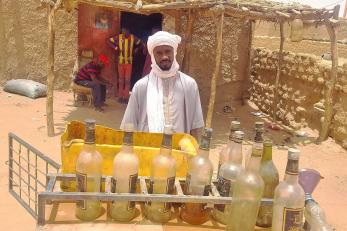
When conflict came to Hassan’s community, it cut his income in half. The father of nine had been relying on the sale of gasoline to get by and was left with little to support his growing family.
"Before the crisis and Mercy Corps’ help in 2012, I was selling … just enough to survive," says Hassan, 38.
That was before he attended our professional training course. Now he says he better understands how to get reimbursed by his clients and access microfinance institutions’ services.
When our team met him he had gas kiosk. After Hassan received a grant, he bought a sales table. When he saved up enough of his earnings, he opened his own shop that generates twice the income he brought in before.
In parallel with building his business, and in the midst of crisis, he is currently building his own house with the money he’s earning. "We live in a dangerous environment where traders are always targeted and stripped of their property by criminals," Hassan says.
But, he says, at least he is independent.
Djingaré
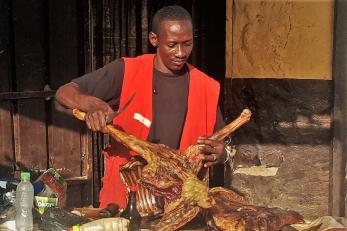
Djingaré, 28, used to travel from one side of Mali to the other — and beyond — in search of work. "This travel only wasted my time,” he says. “After several bad job experiences I decided to come back to Ansongo to create my own shop."
In 2012 he opened his rotisserie shop, but business was slow.
Thanks to his first financial grant from us, he has redeveloped his shop with a storefront and furniture. By putting into practice the advice provided during the entrepreneur training, Djingaré makes 40% than before while mastering money-saving and customer service techniques.
Despite his current success, Djingaré faces many problems, such as lower orders due to the ongoing economic crisis and the lack of materials to improve his shop quality. With more income, he plans to buy a shed and more tables and fans.
"We need to increase opportunities in our community to create more jobs. Without it, many young people may engage in criminal acts or even flee Ansongo,” he says. “It's the lack of opportunity that leads to danger."
Fadilatou
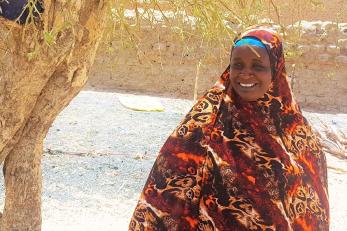
From a young age, Fadilatou ran a small business selling paddy rice and various cereal products. But her business became a meaningful source of income with support from Mercy Corps.
"We have always practiced small businesses in the family and it was during a meeting with our village chief that we learned about [this] program and its entrepreneurship component," she explains.
She says that her favorite part of her training was learning about sales techniques.
After receiving her first grant, Fadilatou invested in milk and sugar but also cigarettes to diversify her products. "Today thanks to God I can make a weekly profit,” she says. “After 5 months of savings, I was able to buy my own cart.”
Fadilatou, like her neighbors, has been living with great insecurity since 2012. Traders are regularly targeted by armed bandits. "Armed men came and asked for a loan composed of 30 kilograms of rice and 1,000 cigarettes,” she says. “I had to let them go with the goods and they never paid me back.”
Despite these problems, the entrepreneur is planning to expand her business by selling dates and chocolate.
"Mercy Corps has really been a partner throughout the process,” she says. “I thank you for that while asking you to continue to support vulnerable populations.”
How you can help
Empowered business owners have the ability to profoundly change their lives, families and communities for the better — and with the right support, they can change the world, too. You can encourage even more entrepreneurs to transform their communities today.
